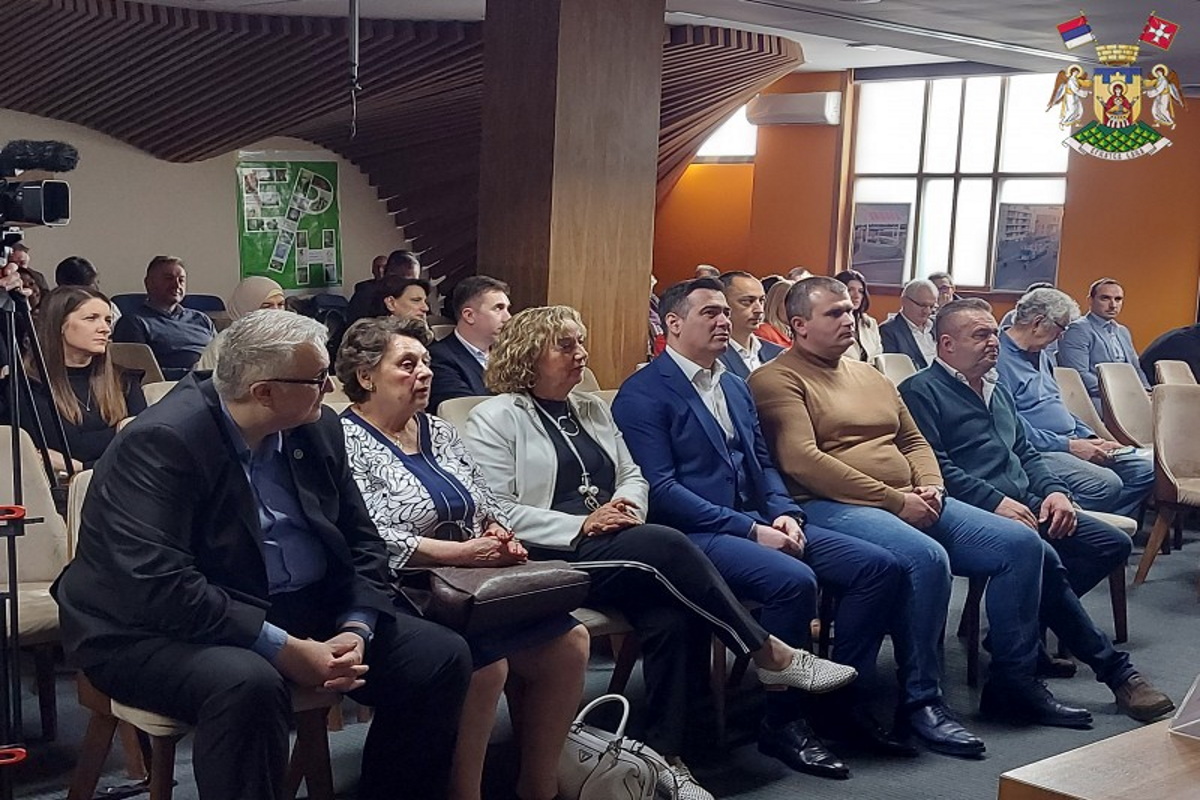For a clean and healthy Serbia- Project “Clean Serbia”
Happy Easter

For a clean and healthy Serbia- Project “Clean Serbia”
Happy Easter

The data which shows that on the shores of Serbian rivers, illegal landfills are forming is alarming. Intentionally disposed of waste subsequently ends up in the rivers‘ course.
Oil and grease packaging, automobile tires, creosote packaging and that of other poisonous substances, household waste and construction waste all often end up on river coast. Even though it is hard to imagine someone just dumping their waste on the river shore, that is in fact a very common picture in river forelands. The waste is most commonly disposed of in places where it is easy to access the river and its coast by car or some other freight vehicle.
Such waste often ends up in the rivers themselves, and the authorities claim that this phenomenon could be prevented with strong inspection, but also by educating the citizens.
The waste that is in the forelands of the rivers primarily endangers the very nature around the river, negatively impacts both the flora and the fauna, and by the same token, distorts the image of the shore so such places, instead of being suitable for the development of tourism or recreation of citizens, mostly become places which are widely bypassed.
Due to heavy rains and land erosion, the waste which ends up in the river course inevitably jeopardizes both the flora and the fauna of the rivers, negatively impacts the quality of water, so many rivers become polluted beyond what is treatable and re-usable. It is not a rare occurance for the operation of hydro power plants to be jeopardized due to the waste flowing in the rivers.
On the frequency of the landfill occurence on river shores testifies a crushing, at the time published data that on the shores of the Morava River, there is an illegal landfill every 200 to 300 meters of the coast. The case is similar for many other rivers.
Rivers and lakes in Serbia are something we are most often proud of, so this kind of image sends a very bad message to all younger generations, but to ourselves as well, because it testifies to a negligent and irresponsible relationship towards the nature that surrounds us.
The “Clean Serbia“ Project is currently building sewage networks which drain all the polluted waters and wastewaters towards the wastewater treatment plants so such wastewater does not end up in the river course. Equal responsibility falls on the citizens themselves, to report the inappropriate disposal of waste to the authorities, but mostly to show their immediate surroundings, by setting a positive example, how to preserve the rivers.
Without water, there is no life, so we have to react before it is too late!

Public Utility Company “Urbanism and Construction of the City of Vranje” has issued an announcement which says that for the next 60 days, due to the construction of the primary collector 8 in Soderce, there will be a traffic stoppage.
The Contractor, “Millennium Team” was issued a consent for the temporary traffic stoppage, for the duration of the construction of wastewater sewage in the length of 3,905 meters.
„This infrastructural facility will be composed out of five secondary and one main collector. On that particular route, 127 inspection manholes and 25 drains will be placed, with the average excavation depth for the placement of pipes of 2.4 meters” states the announcement of the PUC “Urbanism and Construction of the City of Vranje.”

In Vrnjačka Banja, from April 4 to 6, an international conference was held on the topic: “Wastewater, municipal solid waste and hazardous waste”. The goal of the Conference was the exchange of knowledge and experience in all three thematic areas, as well as the application of regulations and standards that lead to the improvement of the environment.
“The “Clean Serbia” project is necessary for Serbia,” is one of the facts presented at the conference dealing with the topic of waste water and municipal waste, held in Vrnjačka Banja.
At Hotel “Solaris”, the participants were addressed by: Predrag Bogdanović, president of the Association for Water Technology and Sanitary Engineering, Dalibor Joknić, secretary of the Association for Communal Activities and Vladimir Milosavljević, director of JKP Vodovod Kruševac.
Boban Đurović, the president of the Municipality of Vrnjačka banja, in his welcoming speech to the guests and participants at the conference, specifically spoke about the treatment of waste water.
“These business ventures require large funds, large manpower in terms of the presence of experts and science, and these funds are actually unattainable for the local self-governments themselves in the full capacity of creating a complete sewage network and waste water treatment plant, and large logistics are required here and support for applications to state and international institutions. The state launched a project “Clean Serbia” and our local self-government is part of that project, we need to build 65 kilometers of sewage network with a waste water purifier. I believe that we will start that work very soon. Of course, we need a lot of such projects in Serbia. We have heard statistics on how many kilometers of sewage network Serbia lacks, how many wastewater treatment plants are lacking, and indeed, this is a topic that should be given full attention, at the national level, because this will be a condition for everything we want in the future. What worries our country more is the fact that we have less and less staff, said Đurović.
The held conference was an opportunity to learn about significant scientific achievements, trends, opportunities and best practices in the sustainable management of wastewater and municipal waste.

The Director of the China Road and Bridge Corporation Serbia Branch Mr. Yang Dong has visited the Autonomous Province Government of Vojvodina where he spoke with the president of the Autonomous Province president Igor Mirovic.
At the meeting which was held in the buildings of the Autonomous Province Government the parties spoke about the projects implemented by the company on the territory of the AP of Vojvodina.
Mirovic has expressed his conviction that the successful cooperation with this particular Chinese Company will continue and introduced the Chinese Partners with new projects planned and prepared by the Autonomous Province Government.
The Director of the company, Mr. Yang Dong has informed the president Mirovic on the state of the works on the Fruskogorski corridor, construction of a new bridge in Novi Sad, implementation of the “Clean Serbia” Project, which includes the construction of Wastewater Treatment Plants, as well as on the construction of the factory complex “Linglong” in Zrenjanin, where the full scope of production is expected to begin in the months to follow.

A direct effect of the implementation of the “Clean Serbia” Project will be visible on almost 50 of our rivers. Whether we are talking about large water systems or smaller rivers known only to the locals, the implementation of the “Clean Serbia” Project will accomplish the preservation of their biodiversity.
The importance of rivers is clearly seen in the fact that they are a natural habitat for many species. Fish, birds, mammals live in rivers or around them and depend on them in order to source food. Additionally, rivers play a very important role in connecting various habitats and they are a pathway in the movement of plants, animals and nutrients. Rivers are very important for birds who depend on them for food, water and habitat. The birds use wetland habitats in order to reproduce, and through the rivers, they migrate from one habitat to another.
Apart from the aforementioned, the health of river ecosystem directly impacts the quality of drinking water. Forests and rivers have the role on natural filters which constantly treat the water, which in turn requires less chemical treatment and other expensive artificial treatment means in order to make it suitable for drinking.
In our rivers unfortunately, fecal waters are one of the most common pollutants. Unplanned settlements and spontaneous construction have led to many rivers getting polluted. Such pollution leads to the reduction of other plant and animal species. Certain Serbian rivers are a far cry from a shining pearl of nature that they used to be.
With the construction of sewage network and by draining the wastewater to the wastewater treatment plan, “Clean Serbia” makes it possible not only for water, but the surrounding nature to remain clean.
The Danube and the rivers Morava, Toplica, Kolubara, Tamnava Dunav, Morava, Toplica, Kolubara, Tamnava are just some of the rivers included in the Project, and the number of residents covered by this program is around 2.5 million in 69 units of local self-government.

The Vice-President of the Government of the Republic of Serbia and the Minister of Finance Sinisa Mali met with the Ambassador of Finland to Serbia, Kim Lahdevirt, with whom he discussed the cooperation between the two countries, as well as the implementation of the green agenda.
Mali and Lahdevirt discussed Serbia’s membership in the Coalition of Finance Ministers regarding climate change, and the Deputy Prime Minister pointed out that our country will join the aforementioned coalition, and that he hopes other countries in the region will do the same.
The Minister thanked for the invitation to join and pointed out that this is an extremely important topic, to which the Government has devoted itself in the last few years. He added that Serbia issued the first green bond in 2021, as the first country in the region and the only country outside the European Union that managed to do so.
In addition, he pointed out that our country has solved the decades-long problem of the landfill in Vinča, and that as part of the “Clean Serbia” project, factories for the treatment of waste water and sewage networks are being built throughout the country.
Taken: text and photo: mfin.gov.rs